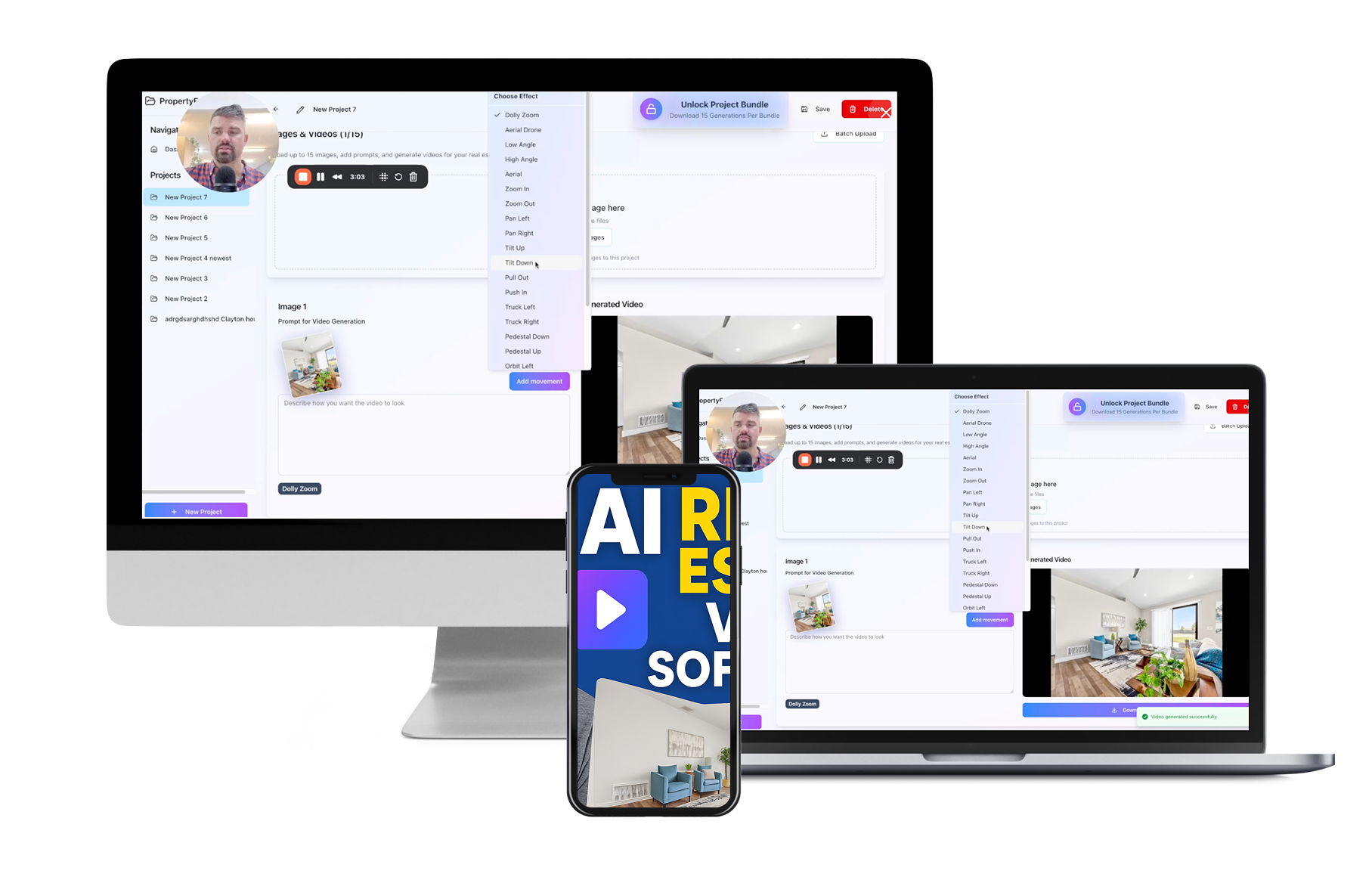10 Ways AI is Revolutionizing Real Estate Virtual Tours
In recent years, the real estate industry has experienced a technological evolution that transformed traditional practices into more efficient, customer-focused processes. Among these innovations, AI-driven virtual tours have become a game changer. The introduction of artificial intelligence into virtual tours provides an interactive and immersive way of experiencing properties, reflecting the core of the target keyword—"10 Ways AI is Revolutionizing Real Estate Virtual Tours."
The Role of AI in Enhancing Virtual Real Estate Tours
Artificial Intelligence is pivotal in creating dynamic, personalized virtual tours that provide potential buyers with a realistic sense of a property. By embedding AI into this aspect of real estate, the industry has elevated the buyer's experience, making it more engaging and insightful.
1. AI-Driven Personalization
AI technology can analyze user behavior and preferences to tailor virtual tours. This capability enhances the attractiveness and relevance of properties shown to potential buyers efficiently.
- User Insights: Algorithms detect patterns and showcase properties aligned with user interests.
- Adaptive Content: Dynamic content adapts to users, emphasizing aspects like room sizes or outdoor views.
2. Enhanced Image Recognition
By using advanced image recognition technologies, AI can identify elements within properties that are highly sought after.
- Feature Tagging: Automatically highlights key property features like gourmet kitchens or unique architecture.
- Real-Time Analysis: Provides ongoing updates, spotlighting changes and upgrades in real-time.
3. Seamless Integration of Virtual Reality and AI
Virtual reality combined with AI offers immersive experiences that bridge the physical and digital worlds effectively.
- 360-Degree Tours: Enhanced with AI, these tours seem more lifelike with natural soundscapes and realistic lighting conditions.
- Interactive Elements: Users interact with virtual objects, opening doors or windows, providing deeper engagement.
4. Improved Accessibility with Virtual Consultants
AI acts as a virtual consultant, providing answers and suggestions based on queries about the property.
- Chatbots: 24/7 availability to provide information and facilitate communication with real estate agents.
- Voice Assistants: AI-driven voice assistants guide users through tours, providing additional context.
5. Market Analysis and Property Insights
AI algorithms supply broad market analysis and insights directly within virtual tours.
- Comparative Data: Viewers receive real-time data of comparable properties, enhancing decision-making.
- Predictive Analytics: AI forecasts market trends and property value surges, proving vital to buyers and investors.
6. Enhanced Visualization Techniques
AI can create enhanced visualizations that make properties more appealing.
- Staging Virtual Rooms: AI virtually stages rooms to display potential furniture layouts.
- Color Coordination: Suggests paint and décor options tailored to user preferences.
7. Automation in Home Tours and Schedule Management
Automation through AI optimizes scheduling and home tour management.
- Tour Customization: AI automates tour setups to suit individual preferences and schedules.
- Calendar Integration: Syncs with calendars for seamless tour arrangements.
8. Augmented Reality Features for Added Insights
Augmented reality coupled with AI provides added insights into property elements that matter.
- Overlays: Visual overlays offer historical property data or planned renovations.
- Virtual Landscaping: Provides potential landscaping views using AR technology.
9. Intelligent Data Collection and Reporting
The ability to collect and report intelligent data streamlines the decision-making process for buyers and sellers alike.
- User Engagement Metrics: Helps refine and personalize future virtual tours based on user interaction.
- Feedback Loops: Continually improve AI systems through user feedback.
10. Redefined Competitive Strategies
AI redefines the competitive strategies within the real estate industry, influencing how properties are marketed.
- Targeted Marketing: Gains insights into demographic preferences and customizes marketing efforts.
- SEO Optimization: Utilizes AI for keyword analysis and optimization, enhancing visibility.
Conclusion: Embracing the Future of Real Estate Tours
The incorporation of AI into real estate virtual tours not only revolutionizes how properties are viewed but also enriches the entire real estate process, from marketing to purchasing. Understanding these 10 ways AI is revolutionizing real estate virtual tours gives industry professionals and property buyers profound insights into future directions of property showcasing.
Embrace the technological evolution of AI-driven virtual tours to stay ahead in the real estate sector. For those interested in keeping up with the latest innovations and practical applications, consider exploring more detailed case studies and expert-led webinars.
Whether you're a real estate agent eager to innovate or a prospective buyer keen on high-tech property solutions, understanding how AI transforms these tours is essential. Embrace these advancements and discover how you can leverage AI to its fullest potential.
"Virtual tours equipped with AI give us the tomorrow we've been waiting for in real estate—where visiting properties is as easy as clicking a button."



